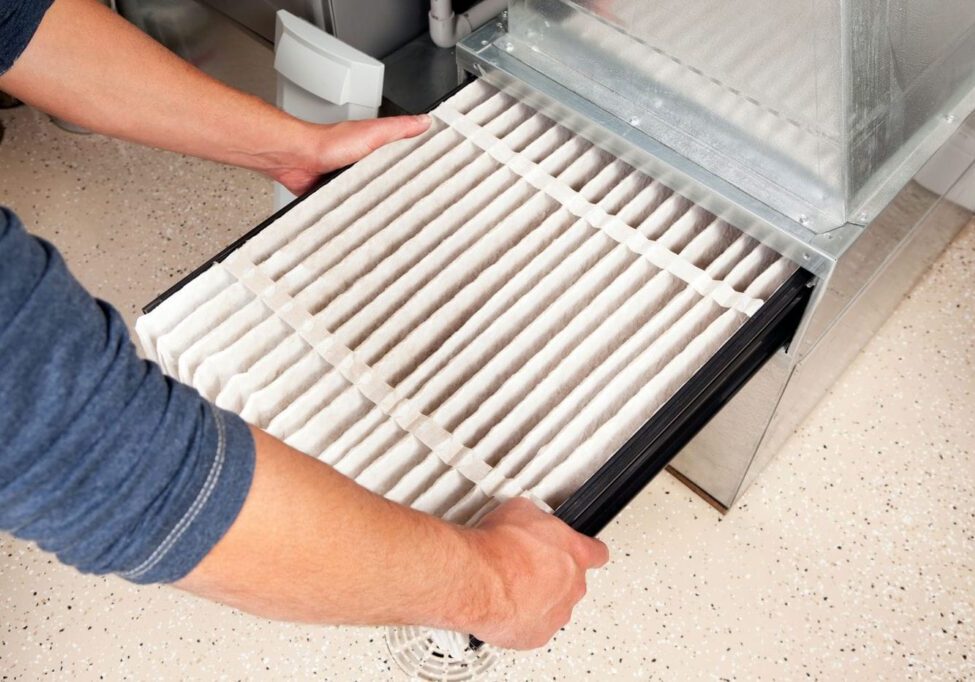
Maintaining your home’s Heating, Ventilation, and Air Conditioning (HVAC) system is crucial for ensuring a comfortable living environment, optimizing energy efficiency, and prolonging the life of your system. Regular maintenance can prevent costly repairs and ensure your system runs smoothly year-round. This comprehensive guide provides a detailed maintenance checklist and valuable tips to help homeowners keep their HVAC systems in top shape.
Understanding Your HVAC System
Before diving into maintenance, it’s important to understand the basics of your HVAC system. Typically, it comprises an air conditioner or heat pump for cooling, a furnace or boiler for heating, and ductwork to distribute air. Each component requires specific care to function effectively.
HVAC Maintenance Checklist
Maintaining your HVAC system effectively involves a series of regular checks and procedures. To make this task manageable and ensure nothing is overlooked, we’ve compiled a comprehensive HVAC Maintenance Checklist. This checklist is designed to guide you through the necessary steps to maintain your system’s efficiency, improve its longevity, and ensure a comfortable and safe home environment all year round.
Monthly Checks
- Inspect and Replace Air Filters: Check your HVAC air filters every month, especially during high-usage seasons. A clogged air filter can lead to reduced air quality, lower system efficiency, and even system damage. If you have reusable filters, clean them according to the manufacturer’s instructions. Disposable filters should be replaced when they become dirty. Remember, the frequency of changes can vary based on factors like pet ownership, indoor air quality, and the type of filter used.
- Check Thermostat Settings: Regularly review your thermostat settings to ensure they reflect your current needs. Consider adjusting the settings for changes in your schedule, seasonal temperature shifts, or when the house is empty. This not only maintains comfort but also helps in conserving energy. If you have a programmable or smart thermostat, explore its features to optimize HVAC performance and efficiency.
Seasonal Maintenance – Spring
- Clean Around Outdoor Units: Ensure the area around your outdoor AC or heat pump units is clear of debris, leaves, and dirt. A minimum 2-foot clearance around the unit is recommended for optimal airflow and efficiency. Be gentle when cleaning and avoid damaging the unit’s fins and coils.
- Inspect Refrigerant Levels: Proper refrigerant levels are essential for effective cooling. Low levels can indicate a leak, which not only reduces efficiency but can also harm the environment. While checking refrigerant levels is a task for professionals, homeowners should be aware of signs of low refrigerant, such as ice buildup on the refrigerant line or the unit taking longer to cool the house.
Seasonal Maintenance – Fall
- Furnace Inspection: Before the heating season begins, it’s crucial to have your furnace or boiler professionally inspected and cleaned. This includes checking the heat exchanger for cracks (a potential carbon monoxide leak source), ensuring the burners are clean and operating correctly, and verifying that the ignition system and safety controls are functioning properly.
- Test Carbon Monoxide Detectors: Carbon monoxide is a colorless, odorless gas that can be deadly. Testing your carbon monoxide detectors ensures they will work in the event of an issue with your furnace. Replace batteries if needed and consider replacing detectors that are over 7 years old.
Annual Maintenance
- Professional HVAC Inspection: An annual professional inspection is crucial for the health of your HVAC system. A licensed technician should check electrical connections, ensuring they are tight and not showing signs of wear. Lubricating moving parts reduces friction and prolongs the life of these components. The technician should also inspect the condensate drain line to ensure it’s not clogged, as blockages can cause water leaks and increase humidity levels.
- Ductwork Inspection: Annually inspect your ductwork for any signs of leaks, which can significantly reduce system efficiency. Look for any visible holes, tears, or disconnected joints. Check for any obstructions that might impede airflow, and consider having your ducts professionally cleaned if there is substantial dust buildup. Properly sealing and insulating ducts can prevent energy loss and enhance system performance.
DIY Maintenance Tips
- Keep Vents Unobstructed: Ensure all vents are free from furniture or curtains to allow free air flow.
- Clean External Components: Gently hose down the outdoor unit to remove dirt and debris, improving efficiency.
- Monitor System Performance: Be aware of unusual noises, smells, or inconsistent temperatures, and address issues promptly.
Why Maintenance Matters
Regular maintenance of your HVAC system plays a pivotal role in enhancing its efficiency. By ensuring that your system operates at its peak, you not only enjoy optimal performance but also see a reduction in energy bills, leading to significant cost savings in the long run.
Furthermore, the importance of maintaining a clean and well-tuned system extends beyond mere efficiency. A well-maintained HVAC system contributes to improved indoor air quality, which is crucial for the health and comfort of all occupants in your home. Dust, allergens, and other pollutants can be minimized, ensuring a healthier living environment.
Lastly, one of the most significant benefits of regular maintenance is the extension of your system’s lifespan. Proper care and timely repairs can prevent severe malfunctions, significantly delaying the need for costly replacements. In essence, regular maintenance is a small investment that pays off by ensuring efficient, healthy, and long-lasting operation of your HVAC system.
Professional Maintenance
While DIY maintenance is important, some tasks require a professional. This includes refrigerant handling, in-depth electrical inspections, and deep system cleanings. Regular professional maintenance can catch potential problems early, saving money in the long run.
HVAC maintenance is a crucial aspect of home upkeep. By following this guide, homeowners can ensure their systems run efficiently, provide comfortable temperatures, and last longer. Remember, a combination of DIY care and professional servicing is key to a well-maintained HVAC system.
